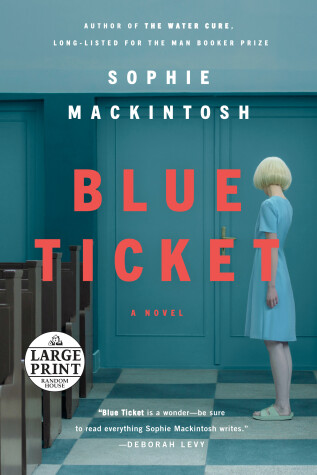
Kim Deister
I absolutely loved The Water Cure, so I had the highest of hopes for this novel. But while I loved the premise of the novel, it just didn’t give me the experience I’d hoped for.
The premise was interesting: a story about expectations, free will, the definition of freedom, and the value of women. As noted in the blurb, as soon as she has her first cycle, girls report to the station to receive one of two kinds of tickets. A white ticket brings with it marriage and children. A blue ticket gives you relative freedom and a career. Those are the only pathways, and girls have no choice as to which path will be followed. As I said, an interesting premise.
But there were several things that undermined what were likely good bones.
1. the lack of world-building: The story puts us into a world with little to no explanation about much of anything, including the motivating force behind the story… getting the tickets. There’s no explanation as to why this is. There’s no explanation as to why blue ticket girls are pushed off into the world, told to find their own way to a city. And there’s a very noticeable lack of law enforcement to go after those that break the rules that seems at odds in a world in which free will is rather limited. Instead, other blue tickets acted in that way against each other.
2. the definition of freedom: It had no logical basis for me.
Blue tickets were equated to freedom, as these women can work, contribute to society, have free relationships. But they were also required to see doctors regularly, who worked for the government.
White tickets were not free because they would be mothers and wives. But they were revered by men, and often by blue tickets.
3. the lack of sympathy for the MC: Callie was so flat, so unhinged, that I felt nothing for her. She was just there.
4. the lack of dialogue: It was a bizarre choice that made it read like a diary, which just didn’t work with this story.
All in all, as a dystopian novel, it lacked a lot for me.

